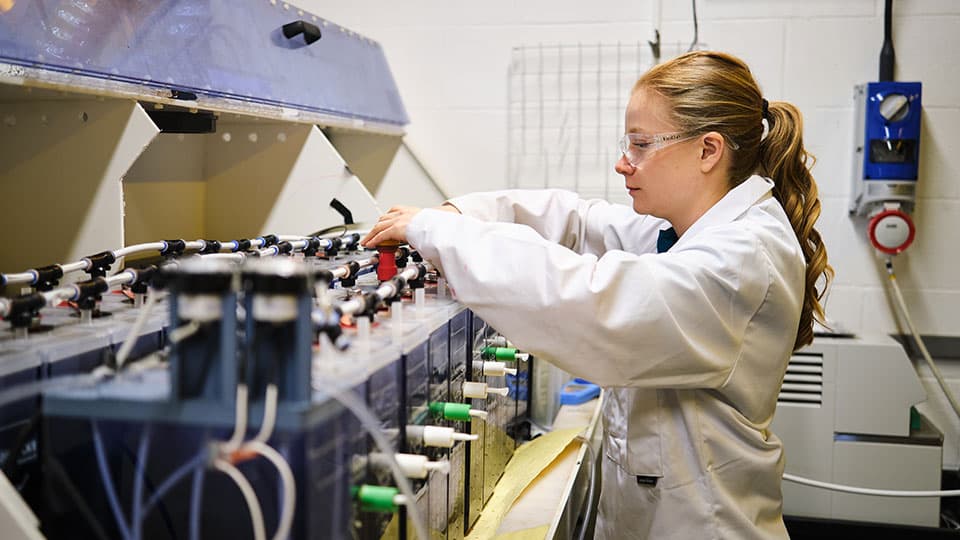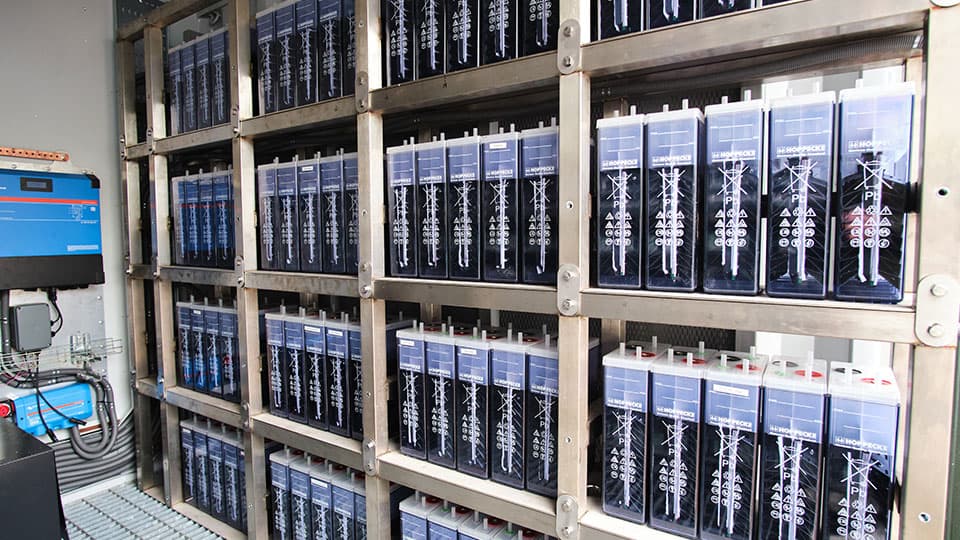The battery electrolyser, designed by academics from Loughborough’s School of Mechanical, Electrical and Manufacturing Engineering, is a containerised system that can store electricity in batteries. However, the batteries have been designed to also produce hydrogen which can then be used for clean cooking.
Currently, communities in Africa use biomass, that comes from plants and animals, but this can often lead to a depletion of natural resources and contributes to deforestation. Burning wood for use during cooking can also release harmful pollutants which cause premature deaths, particularly in women and young children heavily involved in the cooking process.
The use of hydrogen is a green alternative, with the only waste product being water.
Dr Lizzie Ashton, a Senior Research Associate who led on the project, explained: “The battery electrolyser we’ve created is going to go to a school in Zambia, and they’re going to use the hydrogen cooker and the batteries to electrify school classrooms and teachers’ houses, and the hydrogen will be used for clean cooking.
“The reason why we’ve chosen the African communities is because many people, particularly in sub-Saharan Africa, lack access to electricity.
“We want to provide them with energy sustainability and a source of renewable energy. We think the battery electrolysers will be perfect for coupling with wind farms in the UK and then worldwide, coupling with intermittent renewable energy sources.”
The electrolyser works by storing electrical energy, generated from solar panels, and splits the water that’s in the electrolyte into hydrogen and oxygen through electrolysis – passing an electric current through a liquid.
This converts the water into hydrogen and oxygen, with the hydrogen produced going into a compressor and tank. Once there it can be used for many different things, primarily cooking in a renewable and green way.
Dr Toby Reisch, a Research Associate working on the project, added: “Each individual cell in the unit is a battery, and can be connected together to meet whatever power demand needed. For instance, it can provide lighting for schools and classrooms, backup power for hospitals for refrigeration, and it can also produce enough hydrogen to cook for a community in a day.”
If the project proves successful, the team hopes the battery electrolyser concept will be used across various applications, including preventing curtailment of renewable energy in the UK — particularly wind farms - but also any industry that uses hydrogen or a diesel backup generator.
Currently, in off-grid communities or off-grid locations, whether that’s construction or even filming locations, they use diesel backup generators. Diesel backup generators produce a lot of harmful pollutants and have unsustainable CO₂ emissions associated with them. Battery electrolyser systems provide completely renewable energy, providing electrical and hydrogen energy.
ENDS
Video (downloads and embed codes): Battery-Electrolyser: Powering Africa with Hydrogen
.jpg) Download video/audio (inc. raw files): https://www.lboro.ac.uk/media-centre/videos/2025/battery-electrolyser-hydrogen/
Download video/audio (inc. raw files): https://www.lboro.ac.uk/media-centre/videos/2025/battery-electrolyser-hydrogen/
YouTube video link: https://www.youtube.com/watch?v=ahfvYG4cGYg
YouTube embed link: <iframe width="560" height="315" src="https://www.youtube.com/embed/ahfvYG4cGYg?si=BUwFNLoKQK_3IqkB" title="YouTube video player" frameborder="0" allow="accelerometer; autoplay; clipboard-write; encrypted-media; gyroscope; picture-in-picture; web-share" referrerpolicy="strict-origin-when-cross-origin" allowfullscreen></iframe>
Please credit 'Loughborough University', where possible.
For further video/audio support, please contact h.evans@lboro.ac.uk

